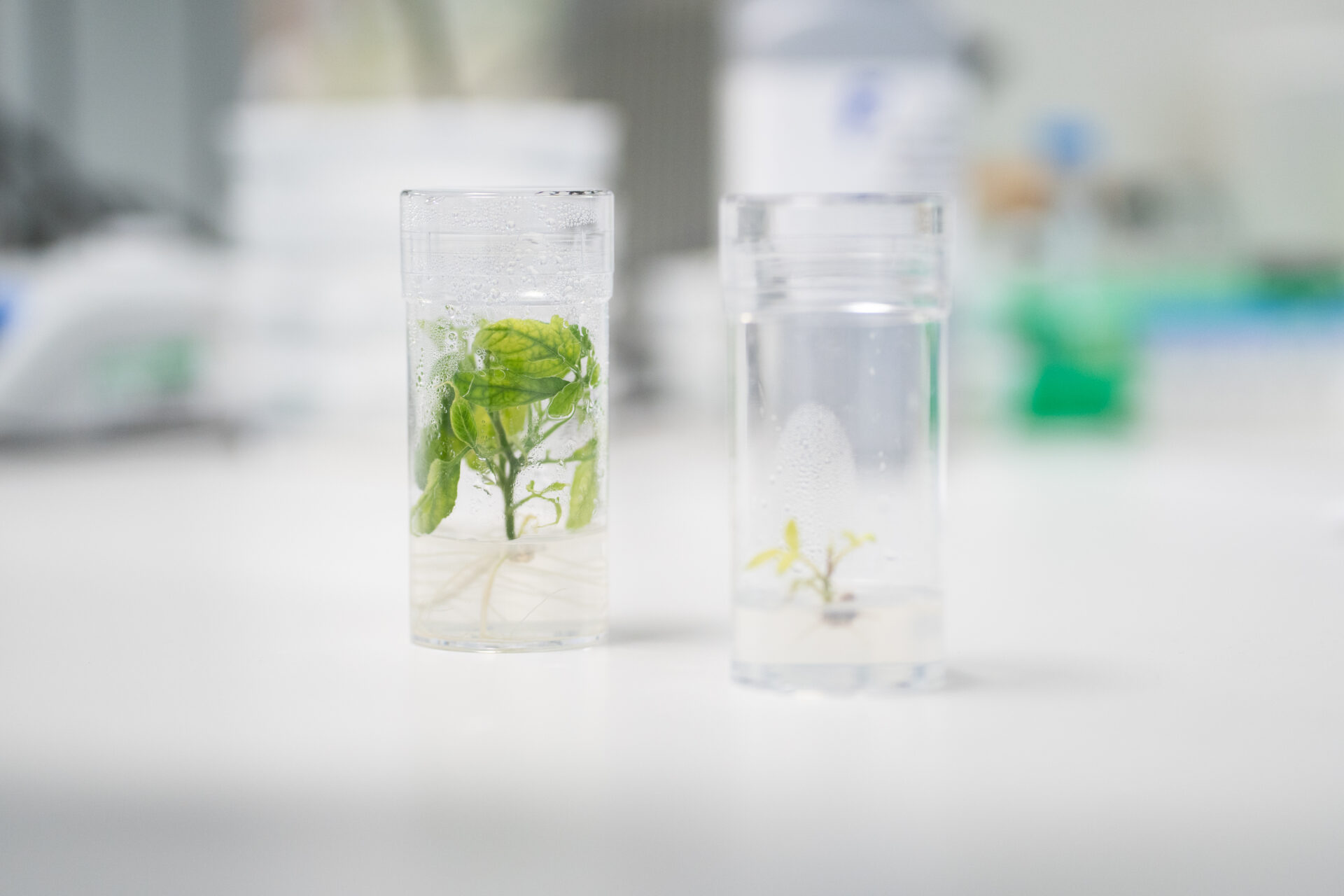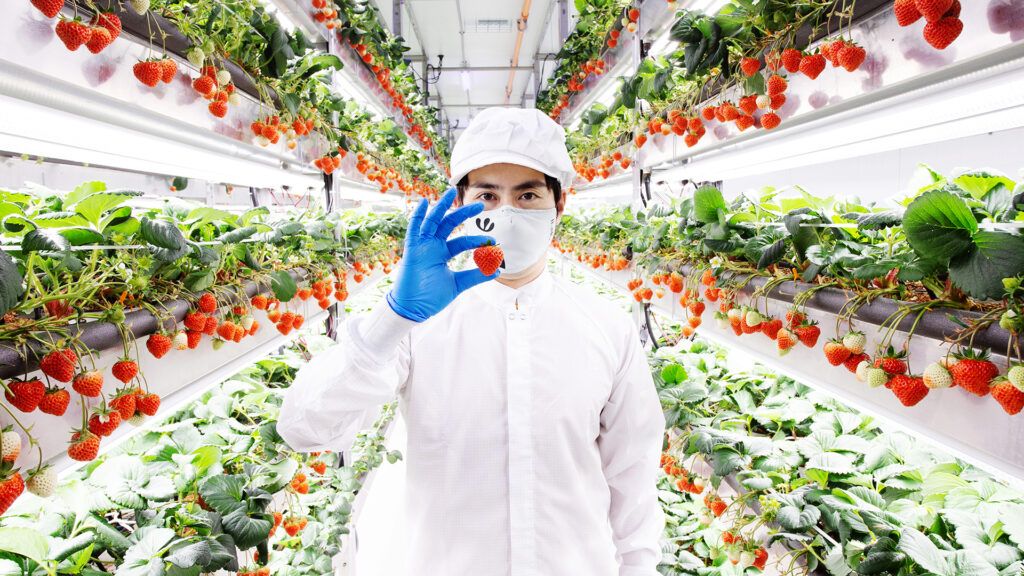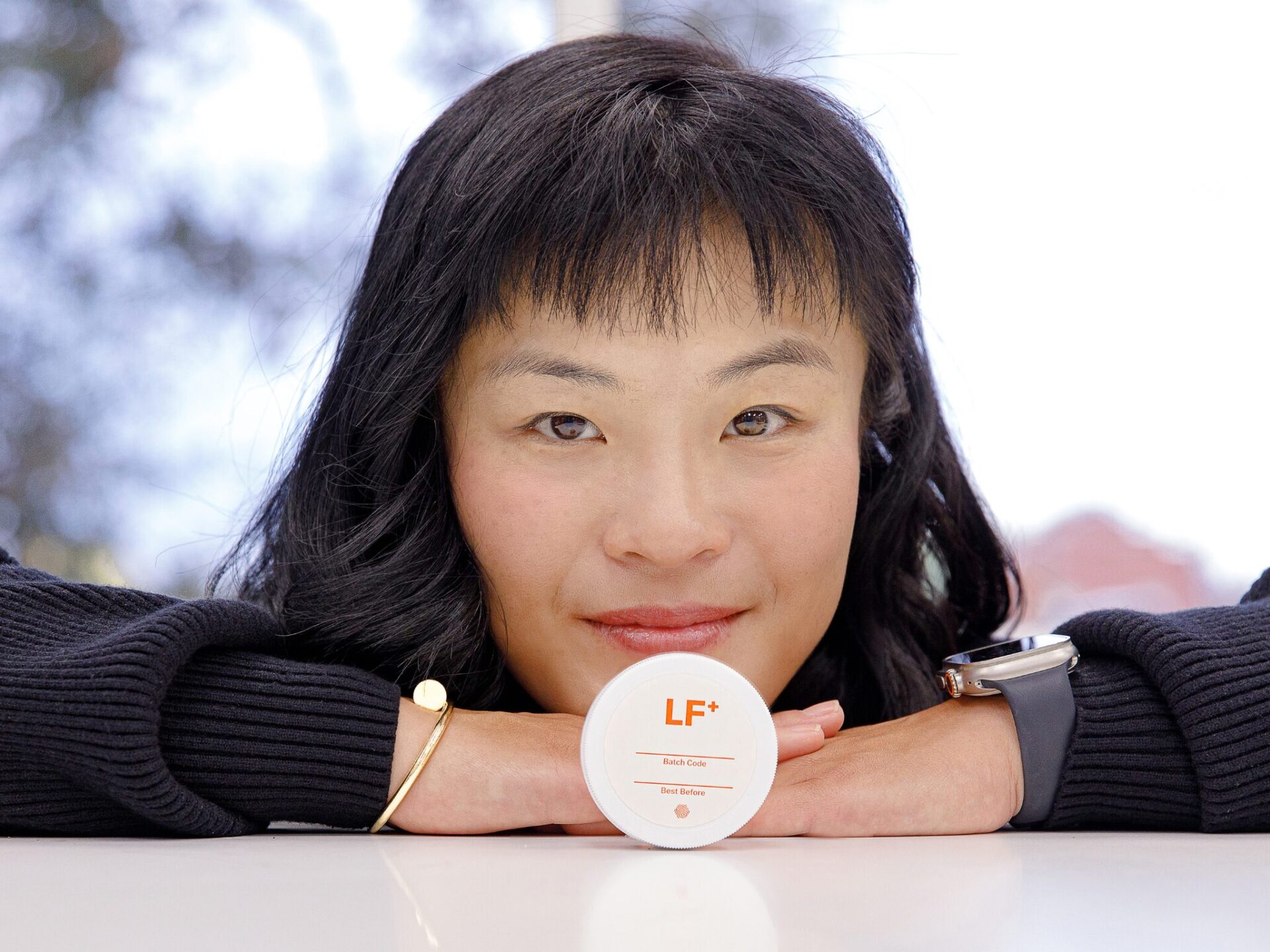In what could be a boon for local tomato production around the world, trait development company Phytoform just unveiled a mini version of the popular Ailsa Craig tomato variety that’s one-sixth the size of a conventional tomato plant and produces fivefold the amount of fruit.
The UK-based startup utilizes gene editing to get this result, accelerating changes that might naturally occur through traditional breeding methods.
Phytoform has also made this tomato “tailored to the needs of vertical farms.”
“We hope our tomatoes are going to be a reset for vertical farming,” says Phytoform founder and CEO Dr. William Pelton. “It’s a small crop that can transform business models from thin margins to decent profits. The growers we’re working with are as excited as we are.”
More fruit, same space
Conventional greenhouse tomatoes typically grow as one long vine over the course of a year. Phytoform can fit three cycles per year in with the new variety, and pack 50 to 100 of its plants into the same space one conventional plant takes up (around one square meter).
“[The plant is] very short but also has quite a compact footprint,” says Pelton. “It’s not sprawling like a lot of the smaller varieties that already exist. When [Phytoform’s tomato] grows up into a bigger plant, to around half a meter, the ratio of inedible to edible biomass shifts.”
In other words, it gets to a point where it’s more like fruit with leaves attached, rather than the leaf-dense plants normally found with tomato crops, increasing the yield.
In trials, Phytoform says it has achieved a kilo of fruit for one 300-gram plant.
“We assumed when we first did this that the fruit would shrink with the plant,” says Pelton. “But it stayed pretty much the same as the original fruit size here. So basically what we created is a way to reduce the stature of a plant significantly but keep the high yields.”
“We can actually get 150 to 300 kilograms per square meter, which is 180% to almost 400% increase compared to the conventional systems,” he notes.
Higher-value for vertical farms
Phytoform chose vertical farming for this tomato largely because of its faster trial cycles and ability to “complete multiple trials in parallel throughout the year,” says Pelton.
It’s also an opportunity to shift focus for the vertical farming space, which Pelton says has been stuck on low-value leafy greens; operators now are in search of high-value crops as part of their rotations.
“Our aim is to make [our product] comparable to those premium tomato products you see in stores,” he adds. “We’ve been working with varieties that are really flavorsome, colorful so we can tap into that premium market.”
The price point will not, he adds, be as premium as that of Oishii, which also grows tomatoes in vertical farms but takes a fairly different approach to Phytoform’s.
Nor is Phytoform limiting itself to the vertical farming medium, says Pelton. The company has also received interest from greenhouses as well, though getting traction in that area is still in very early stages. It has additional crops in the works it will release over the next six months, including an outdoor tomato and a potato product.

Ready for regulatory movement
A changing regulatory landscape has been helpful for the company, says Pelton. Genome-edited foods are already available in the US (see Fresh Del Monte’s pink pineapple).
The same may soon be true in the UK as well. At the World Agri-Tech event in London this year, UK Food Security and Rural Affairs Minister Daniel Zeichner announced next steps for advancing legislation on gene-edited crops and foods in England. While gene-edited plants can now be trialed in England, they cannot yet be commercialized, at least not yet.
“They didn’t put a timeline on [commercialization], but they did announce it was going to change,” says Pelton.
“We’re really trying to push that regulation, and this a great case study for why that regulation needs to change. We have this unique offering that we would commercialize, that could help in the UK because we eat a lot of tomatoes.”
The majority of UK tomatoes are imported right now.
While there’s no official word on the timeline for commercialization, Pelton suspects it will be sometime in 2025. Phytoform aims to be ready to sell by then.
The company currently has trials with farms in the UK including Harvest London and the Jones Food Company, and is lining up farms in the US and Australia. Pelton says the company has already begun to scale production on its tomatoes.
“By the time the UK gets around to changing the regulation, which I suspect will be next spring, I think we’ll be ready to go.”
Source link
Author Jennifer Marston





